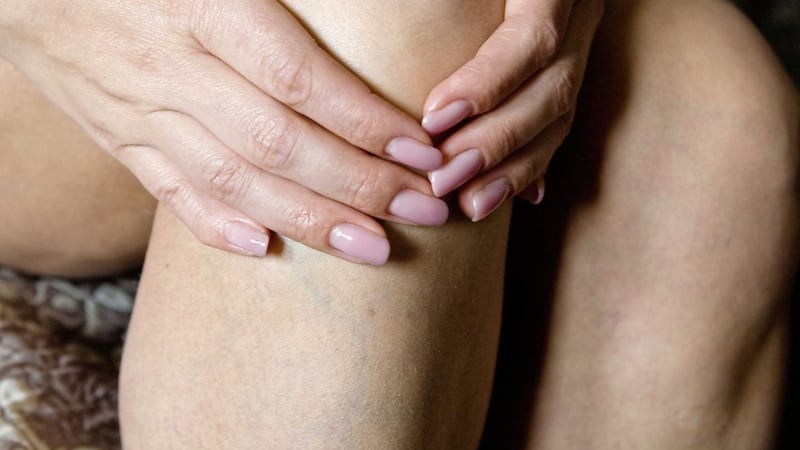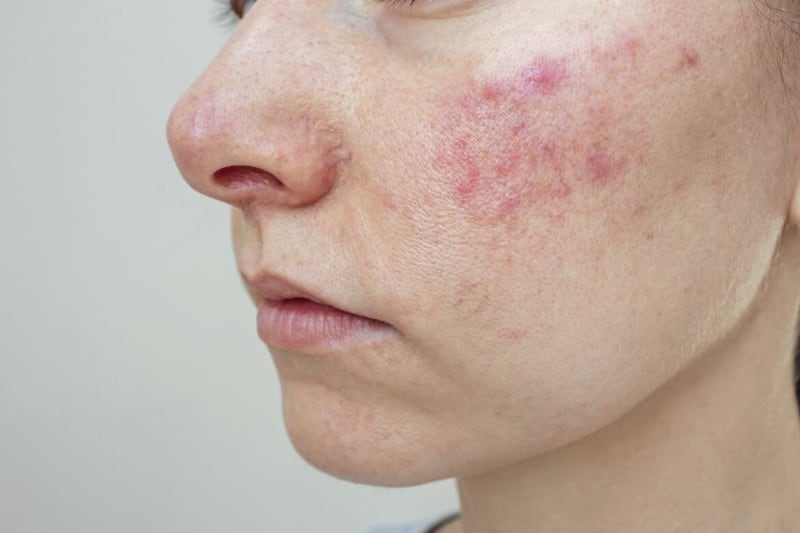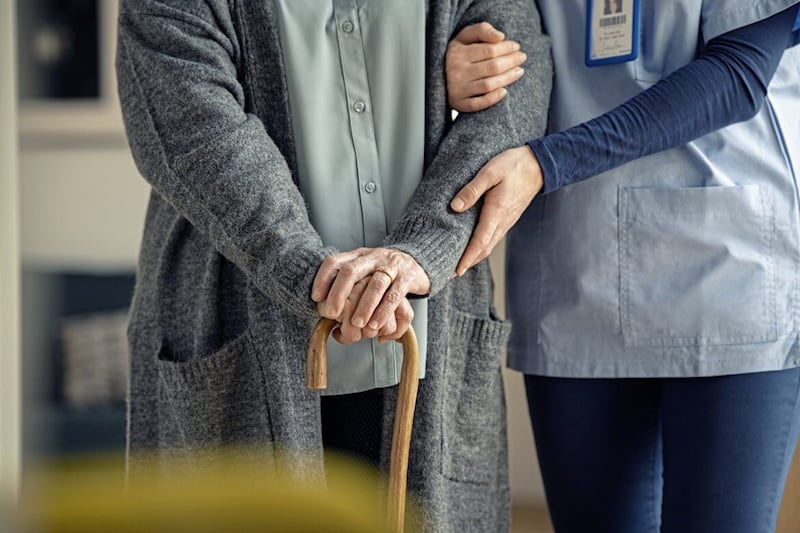Q: MY WIFE Has bruised easily on her shins for several years. She has to wear long dresses or trousers to cover them, and we’ve been told nothing can be done. Can you help?
AS
A: EASY bruising is common and can be caused by medication, an underlying medical condition or ageing. In one study of 500 healthy adults, 18 per cent reported bruising that occurs without injury or after minor knocks or bangs. Bruises develop in a three-step process that begins with tiny blood vessels called capillaries becoming damaged and bursting, leaking blood which pools beneath the skin. This triggers platelets – tiny cells in circulating blood – to rush to the site of the damage and form a ‘plug’.
Finally, this plug, or clot, is strengthened by proteins called clotting factors.
If any of these steps is altered, the risk of easy bruising is raised. For instance, abnormalities of the platelets can be caused by certain medicines and, in some people, even by eating garlic, while liver disease or vitamin K deficiency may affect clotting.
We tend to bruise more easily as we age, and some people, especially women who are fair-skinned or overweight, do so for no obvious reason.
It is important to determine if there is any significant bleeding – such as nosebleeds – and what medications a patient is taking.
Medicines that can cause bruising include ibuprofen and other non-steroidal anti-inflammatory drugs (NSAIDs), anticoagulants (such as warfarin), antiplatelet drugs (for example aspirin and clopidogrel) and steroids (like prednisolone).
Certain antidepressants are also incriminated (such as fluoxetine), as are some antibiotics.
I do not believe your wife’s condition to be sinister, as the bruising is confined to her shins, and this has been happening for some years. No other aspects of any background illness have become apparent.
But it saddens me to say there aren’t any treatments for this type of unexplained bruising, other than to protect her shins with clothing.
That said, if she has five or more bruises greater than 1cm in size, and has not banged or hurt her shins, then your wife should see a haematologist for investigation.
Q: A RELATIVE has had testicular pain for a year. I’ve read this can be caused by an infection or even heavy lifting, but antibiotics and procedures have not helped.
Name and address supplied.
A: THE testicles are sensitive and even a minor injury can cause pain or discomfort. Causes include swelling of the prostate (prostatitis), nerve damage caused by diabetes, testicular cancer and infections.
Heavy lifting is not normally implicated, unless the discomfort is due to an undetected early hernia causing referred pain (felt in a part of the body other than its source).
In your longer letter, you explain that your relative has seen several urologists and cancer has been ruled out. I suspect he has prostadynia, a common, but mysterious, condition sometimes referred to as a ‘pelvic headache’, which, you’ll be relieved to hear, is not sinister.
However, it can cause a great deal of worry, not least due to the battery of tests a patient may go through to rule out other conditions.
Between 2 and 10 per cent of men will suffer from prostadynia at some stage, but its cause is unknown and the only symptom is a dull, nagging pain. This stems from the prostate, but may be felt elsewhere – such as the lower back, lower abdomen, upper inner thighs or testicles.
There is no definitive test and so diagnosis is based on excluding other possibilities. Similarly, there is no set treatment.
Urologists often prescribe alpha-blockers, such as tamsulosin, or alpha-reductase inhibitors, such as finasteride. Both are used to help with symptoms of an enlarged prostate (benign prostatic hyperplasia). Finasteride is also used to treat male pattern baldness. How effective the drugs are in prostadynia is unclear, though, as valid studies are lacking.
Anti-inflammatories may also be prescribed, often as suppositories, and the treatment may need to be continued for up to a month.
I suggest that your relative raises the possibility of prostadynia at his next medical appointment.
Q: I HAVE threadworms. I have bought Ovex tablets from my chemist but I still have the problem. I have washed everything in the house. I am at my wits’ end.
Name and address supplied.
A: THREADWORMS infest the colon and rectum and are particularly common among the under-10s. You are correct to take Ovex, the drug mebendazole, at a single dose of 100mg. Mebendazole is also available in liquid form for children.
The infection is easily transferred, so it is wise to treat every member of a household.
Threadworm cause a persistent itch in the anal area, and children tend to scratch, particularly at night, when the worms – which look like lengths of white cotton – come out to lay their eggs.
Mebendazole kills the worms within days, but not the eggs. Accordingly, when residual eggs hatch, the infestation will continue. So a second dose 14 days later will break the cycle.
Why you continue to suffer is unclear. If you can see threadworms, then take a double dose, ie 200mg (as some infections are resistant to treatment) and repeat after 14 days. If there are no worms, it might be that you have pruritus ani, a chronic itching around the anal area that can be triggered by a threadworm infection.
I suggest you request a Sellotape slide test from your GP. This involves applying a 5cm length of clear sticky tape over the anus and then sticking this on a glass slide provided.
This is examined under a microscope. If eggs are present, there is a continuing infection; if not, you have pruritus ani.
If the latter is the case, wash the area with aqueous cream and apply one per cent hydrocortisone cream (no prescription is necessary) twice daily for about two weeks.
© Solo dmg media
CONTACT DR SCURR
To contact the GP, email askthegp@irishnews.com. Include your contact details. Dr Scurr cannot enter into personal correspondence. Replies should be taken in a general context and always consult your own GP with any health worries.








